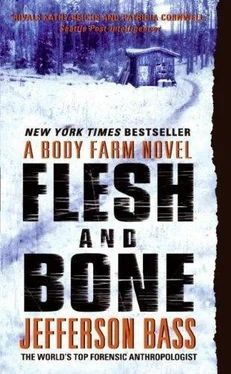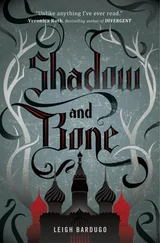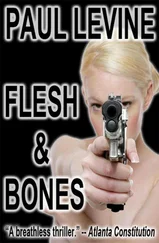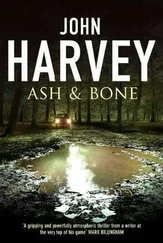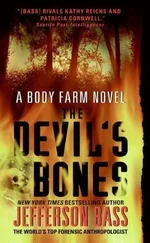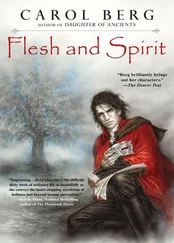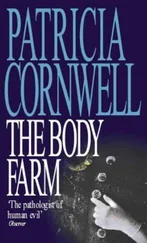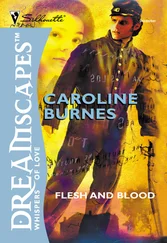Jefferson Bass - Flesh and Bone - A Body Farm Novel
Здесь есть возможность читать онлайн «Jefferson Bass - Flesh and Bone - A Body Farm Novel» весь текст электронной книги совершенно бесплатно (целиком полную версию без сокращений). В некоторых случаях можно слушать аудио, скачать через торрент в формате fb2 и присутствует краткое содержание. Год выпуска: 2007, Жанр: Детектив, на английском языке. Описание произведения, (предисловие) а так же отзывы посетителей доступны на портале библиотеки ЛибКат.
- Название:Flesh and Bone: A Body Farm Novel
- Автор:
- Жанр:
- Год:2007
- ISBN:нет данных
- Рейтинг книги:3 / 5. Голосов: 1
-
Избранное:Добавить в избранное
- Отзывы:
-
Ваша оценка:
- 60
- 1
- 2
- 3
- 4
- 5
Flesh and Bone: A Body Farm Novel: краткое содержание, описание и аннотация
Предлагаем к чтению аннотацию, описание, краткое содержание или предисловие (зависит от того, что написал сам автор книги «Flesh and Bone: A Body Farm Novel»). Если вы не нашли необходимую информацию о книге — напишите в комментариях, мы постараемся отыскать её.
Flesh and Bone: A Body Farm Novel — читать онлайн бесплатно полную книгу (весь текст) целиком
Ниже представлен текст книги, разбитый по страницам. Система сохранения места последней прочитанной страницы, позволяет с удобством читать онлайн бесплатно книгу «Flesh and Bone: A Body Farm Novel», без необходимости каждый раз заново искать на чём Вы остановились. Поставьте закладку, и сможете в любой момент перейти на страницу, на которой закончили чтение.
Интервал:
Закладка:
“Don’t get me wrong,” I said. “I’m not dismissing the possibility of some higher principle or higher power operating in the universe, something that’s far beyond my meager powers of comprehension. I can’t explain the ‘why’ of evolution, but the fact that I don’t fully understand how it works doesn’t keep it from working. I don’t begin to understand how pictures appear on my television screen, but that doesn’t keep them from showing up. And it doesn’t mean God put them there. The laws of physics-and people who are smarter about those laws than I am-put them there.
“And if we need any further proof of unintelligent design,” I said, really getting wound up, “all we need to do is look at the Kansas Board of Education. Those people are the very incarnation of dumb design.” I waved the morning newspaper.
My opponent was not ready to give up. “We are made in the image of God,” he insisted.
“Then God must be evolving, too,” I snapped. “And I hope he’s got some divine dentist up there in heaven to extract his wisdom teeth, because once they get impacted, God’s gonna have one hell of a toothache.” I wadded the newspaper into a ball.
I heard a gasp, and then a snicker, and the class jester called out, “Amen, brother!” And then someone at the back of the room began to clap. Slowly, steadily. Soon more of the students began to clap, and before long, almost all of them were clapping.
The young man in row three stood up. I opened my mouth to tell him to sit down, but then I noticed his face. It was a bright mottled red, and he looked on the verge of tears. He stared at me for a long moment, with eyes full of hurt and betrayal. Then he walked up the aisle and out of the lecture hall, accompanied by catcalls and whistles.
I gathered up my notes, the pelvis, and the crumpled newspaper, and exited by the lower door. As I traipsed down the sidewalk from McClung Museum to the underbelly of Neyland Stadium and the stairwell to my office and my collection of still-evolving skeletons, I accused myself of going too far, speaking too harshly, because I’d gone into class already mad about the newspaper article. It was important for scientists to defend good science and expose pseudoscience. But it was also important to do it gently, at least when students were involved. “Damn, Bill,” I said to myself, and at myself. “Damn.”
CHAPTER 9
TESTIFYING AT A HEARINGto revoke a physician’s medical license wasn’t exactly the same as testifying in court, but it was damn close. This hearing looked like a trial and it quacked like a trial, complete with lawyers and oaths to tell the truth.
The Tennessee Department of Health and Environment had a lawyer whose job was to ask me easy questions, and Dr. Garland Hamilton-the medical examiner whose license was on the chopping block, so to speak-had a lawyer whose job was to chip away at my answers.
The case that had prompted the state to try to revoke its own regional medical examiner’s license was a fascinating one. A man named Eddie Meacham called the 911 dispatcher in Knoxville one Saturday night to say that his friend had just collapsed. By the time the ambulance arrived, Billy Ray Ledbetter was dead, with a bloody wound in his lower back. Dr. Hamilton performed an autopsy, found copious amounts of blood in Ledbetter’s right lung, and pronounced the cause of death to be a stab wound in the lower back, with the blade penetrating the lower lobe of the right lung.
Trouble was, it turned out that the “stab wound” was inflicted by a big shard from a glass-topped coffee table, which Billy Ray had shattered when he collapsed onto it. I had the dubious plea sure of getting involved when I did an experiment at the Body Farm that showed it would have been impossible for a knife blade-even if there had been a knife wound, which there wasn’t-to puncture the back on the left side, cross the spine, and then veer ninety degrees into the right lung. The real cause of the lung hemorrhage, it turned out, was a bar fight a couple of weeks before Billy Ray’s death, when he got severely boot-stomped, breaking multiple ribs and puncturing the lung with a sharp piece of bone. My testimony had served the dual purpose of clearing Billy Ray’s friend of an unjustified murder charge-which pleased me-and of spotlighting Dr. Hamilton’s incompetence-which displeased me on two counts: first, that he was incompetent, and second, that I was now part of the effort to strip a longtime colleague of his license to practice medicine.
Hamilton had confronted me furiously after the trial, so I was prepared for the worst when I entered the hearing room. He stood up and stepped toward me; I braced for an assault, verbal or even physical. Instead, he stretched out his right hand. Startled, I took it and shook. “No hard feelings, Bill,” he said with a smile and a squeeze of my hand.
Surprised at his change of tone, all I could come up with was, “I hope not, Garland.”
Up at the front of the room, which was just a large conference room in one of the state office buildings in downtown Knoxville, a panel of three physicians-members of the Board of Medical Examiners-sat behind a long table. To one side, a stenographer perched at a much smaller table, her fingers poised over the odd little machine she used to transcribe words. I was fascinated by the technology. Her machine, a stenograph, looked more like an old-fashioned adding machine than a computer or typewriter; as she typed, though, she would often press two or three keys at once, like playing a chord on a piano. I had once asked a court reporter to explain and demonstrate the technique to me. “I’m transcribing sounds, not words,” she’d said, and she had me speak a few words at a time. She showed me what combinations of keys she used to transcribe the various sounds I had uttered-sometimes a “chord” represented a syllable; sometimes an entire word; in one case, even an entire phrase. It beat the hell out of anything I’d ever seen: as if she’d had to master a new language and a musical instrument all at the same time. Ever since, I’d had great admiration for court reporters’ abilities.
“Dr. Brockton, are you ready?” The state’s lawyer brought my mind back to the business at hand. He had already briefed me on the charge against Hamilton: “significant professional incompetence, with actual or risk of immediate harm,” the most serious charge possible. In this case, the harm was not to the patient, since Billy Ray was long since dead by the time Hamilton got to him; the harm was to the friend who faced life in prison for an unjust charge of murder. Pretty harmful, all right. If the examiners upheld the complaint, Hamilton’s license could just be suspended temporarily, but it was more likely to be revoked for good. And it would be good, judging by some other shoddy autopsy reports I’d seen.
I’d brought diagrams of the spine, rib cage, and lungs, showing the impossible “wound path” Hamilton had described the knife taking; I had also requested that a teaching skeleton be on hand so I could further illustrate the impossibility in three dimensions. The state’s lawyer led me swiftly through a recap of the experiment I’d done, in which I had been unable even to approximate the path Hamilton had described. He ended by having me describe finding the shard of bone, from Billy Ray’s own splintered ribs, that had pierced the right lung. The examiners on the panel asked a few questions: Might a thinner blade have been able to make the requisite turns? Was there any sign of a knife mark on the detached bone shard? Was there any possibility the shard had punctured the lung during postmortem handling of the body? — but they seemed satisfied with my answers.
Then Hamilton’s lawyer got his turn. I had been cross-examined by the Knox County district attorney about this same case, so I felt reasonably confident, well prepared, but his first question threw me off-balance. “Dr. Brockton, did you examine the decedent, Mr. Ledbetter, for evidence of scoliosis? Curvature of the spine?”
Читать дальшеИнтервал:
Закладка:
Похожие книги на «Flesh and Bone: A Body Farm Novel»
Представляем Вашему вниманию похожие книги на «Flesh and Bone: A Body Farm Novel» списком для выбора. Мы отобрали схожую по названию и смыслу литературу в надежде предоставить читателям больше вариантов отыскать новые, интересные, ещё непрочитанные произведения.
Обсуждение, отзывы о книге «Flesh and Bone: A Body Farm Novel» и просто собственные мнения читателей. Оставьте ваши комментарии, напишите, что Вы думаете о произведении, его смысле или главных героях. Укажите что конкретно понравилось, а что нет, и почему Вы так считаете.
